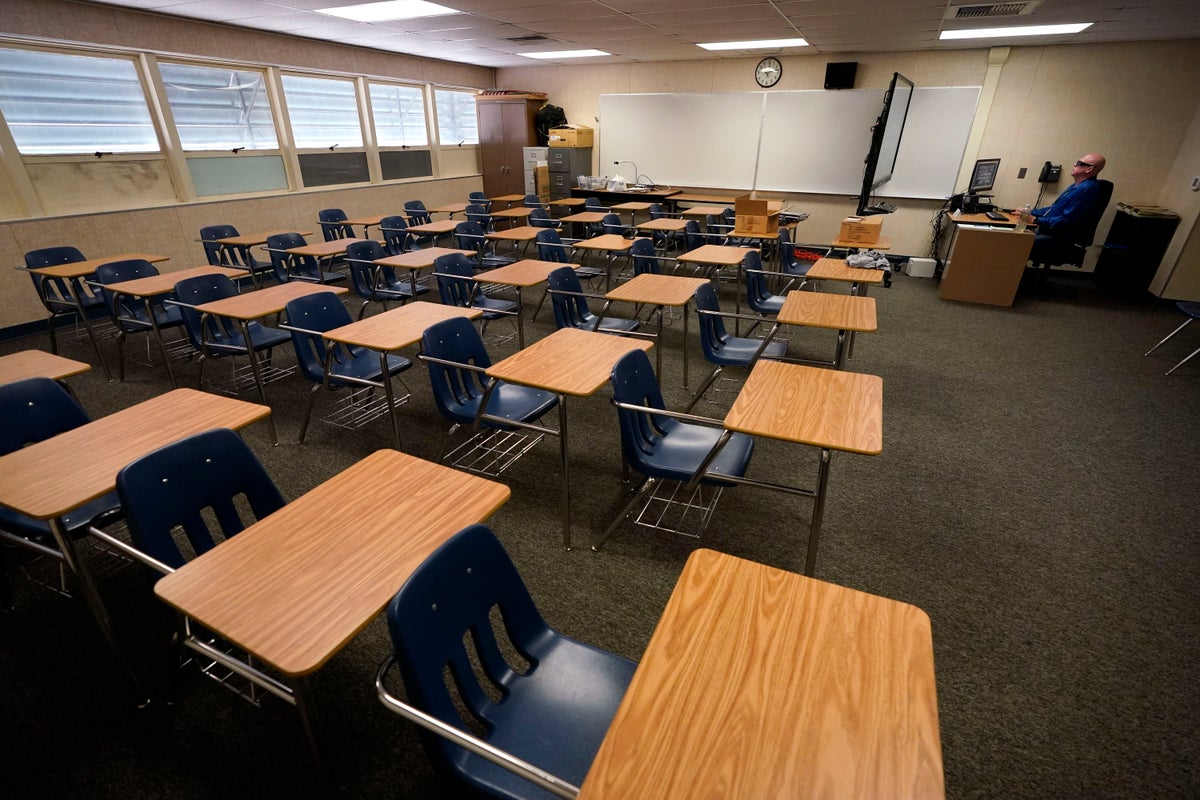
Students around the world suffered historic setbacks in reading and math during the COVID-19 pandemic, with declines in test scores so widespread that the United States climbed in global rankings simply by falling behind less sharply, a new study finds.
The state of global education was given a bleak appraisal in the Program for International Student Assessment, the first study to examine the academic progress of students in dozens of countries during the pandemic. Released Tuesday, it finds the average international math score fell by the equivalent of three-quarters of a year of learning. Reading scores fell by the equivalent of half a year.
The setbacks spanned nations rich and poor, big and small, with few making progress. In the countries where students were tested, a quarter are now considered low performers in math, reading and science, meaning they struggle to perform basic math problems or interpret simple texts.
Usually given every three years, the latest test was delayed a year because of the pandemic. It was administered in 2022 to a sample of 15-year-olds in 37 countries that are members of the Organisation for Economic Co-operation and Development, plus 44 other partner countries. The OECD has been conducting the test since 2000.
The new results point to an “unprecedented drop in performance,” the report says. It raises concerns about countries including Germany, Iceland and the Netherlands, which saw drops of 25 points or more in math scores. Twenty points is seen as equivalent to a year of learning.
Across all participating countries, the average math score fell by about 15 points since the 2018 tests. Reading scores fell by 10 points. Neither subject had seen a change of more than five points previously. The bright light was in science, where scores changed little since 2018.
In the U.S., which historically has lagged in math, the average math score fell by 13 points. Reading and science stayed mostly even. Overall, the country improved to No. 26 in math, up three spots from 2018. It ranked No. 6 in reading and 10th in science, up two and one spots, respectively.
America’s math score was about even with the international average. Science and reading were slightly higher.
“The whole world is struggling with math, and we are not immune from that,” said Peggy Carr, head of the National Center for Education Statistics, an office of the U.S. Education Department. “Everyone had struggles during the pandemic. What we’re seeing here is we had less.”
The new results line up with findings from individual countries reporting deep and persistent academic setbacks, especially in math. A national study in the U.S. last year found math scores fell by more than ever, with reading scores dropping to 1992 levels.
There’s no doubt the disruption of the pandemic was a major factor in the global setbacks. But the OECD cautions against blaming it all on COVID-19. Science and reading scores were falling before the pandemic, it says, and some countries were already trending downward in math, including Belgium, Finland, Canada and France.
It also finds the link between school closures and academic setbacks was “not so direct.”
A survey of students found about half faced closures of more than three months, but it didn’t always lead to lower scores. There was “no clear difference” in performance trends between countries that had limited closures, including Iceland and Sweden, and those with longer closures, including Brazil and Ireland, according to the report.
“Many other factors impacted learning during this period, such as the quality of remote teaching and levels of support granted to struggling students,” it said.
Singapore, long seen as an education powerhouse, had the highest scores by far in every subject. It was joined in the upper echelons by other East Asian countries including Japan and China. Also among the higher performers were Estonia, Canada and Ireland.
Albania saw the biggest decrease in math scores, with a staggering 69-point decrease, followed by Jordan, with 39 points, and Iceland, with 36. Iceland’s drop knocked it below the U.S. and the OECD average. Norway fell 33 points, dropping to the global average.
Most of the countries that saw math gains had relatively low performance levels to start with, including Saudi Arabia, the Dominican Republic and Cambodia.
In the U.S., Education Secretary Miguel Cardona attributed the relative success to President Joe Biden’s investments in education, including $190 billion in pandemic relief that Congress sent to schools. Still, he said, America’s math scores remain “stubbornly low.”
“We cannot be complacent at home," he said, “not when math is critical to our global competitiveness and leadership.”







